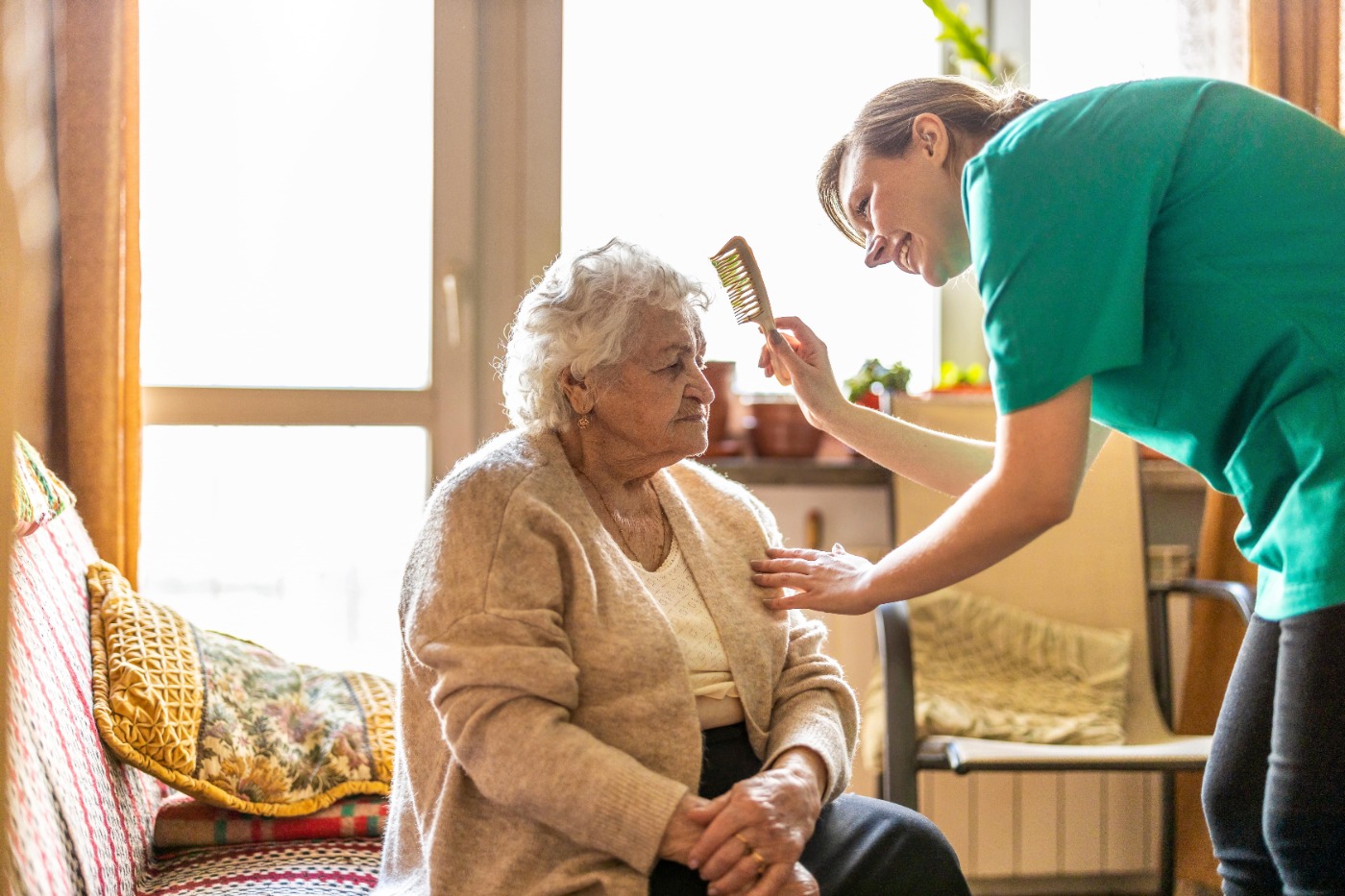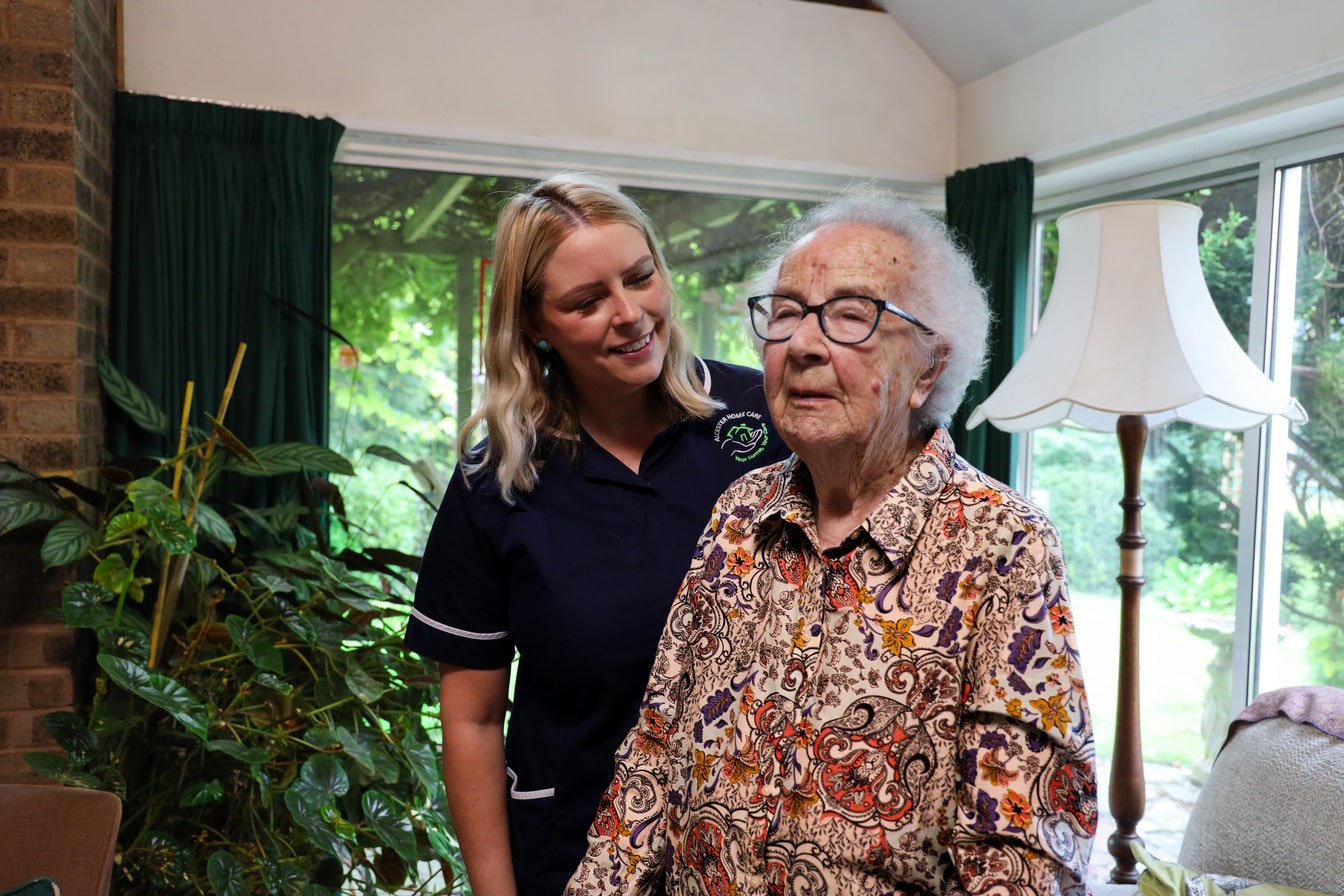Personalised Care Plans
Each person’s unique needs, preferences, and medical history are strongly considered.
Experienced & Compassionate Staff
Provide emotional support and a deep understanding of each person’s unique needs.
Comfortable Environments
We create a safe environment in our clients’ homes to maintain familiarity & comfort.
Family & Loved Ones Support
Family and loved ones can create a collaborative experience with us, being there each step of the way.

Providing Stability
Dementia can be a frightening experience for both those living with the condition and their loved ones.
Changes in routine or living arrangements can trigger stress and anxiety, which is why we emphasise the importance of creating a stable and familiar environment.
We understand that everyone experiences dementia differently and no two cases are the same.
Our highly trained and compassionate carers are there to help those living with dementia as well as take the pressure off of their loved ones.
Comprehensive Monitoring
We can offer round-the-clock monitoring to ensure your loved one is always safe.
We implement technology that can provide you with 24/7 updates about the care your loved one is receiving and how they are getting on. With just a click, you can stay informed about every part of your loved one’s care in real time.
For families that would prefer to use traditional communication methods, we are more than happy to provide updates over the phone or write in the communications book. Your care, your choice—our priority is to support you in the way that works best for you.

Compassionate Support
Our expert carers bring a wealth of experience in supporting those with dementia, ensuring they can continue to live comfortably in the familiarity of their own homes.
To help you make an informed decision, we can connect you with families who are currently receiving care or have previously received care. This decision is significant, and hearing from others’ experiences can provide valuable insights.
If you’re becoming increasingly forgetful, particularly if you’re over the age of 65, it may be a good idea to talk to your GP about the early signs of dementia.


Understanding Dementia
Dementia is a term for a range of conditions that affect memory, thinking, and behaviour. It goes beyond occasional forgetfulness, disrupting daily life and, over time, impacting a person’s capacity for communication, task performance, and independent living.
Alzheimer’s disease is the most common form, but other types include vascular dementia, Lewy body dementia, and frontotemporal dementia.
Symptoms vary between individuals, such as confusion, mood swings, or difficulty recognising loved ones. Early diagnosis and support are important in managing dementia, helping to slow progression and improve quality of life.
At Alcester Home Care, we understand that each experience with dementia is unique, and we tailor our care to meet individual needs.
Dementia Care Plan
A dementia care plan is a comprehensive, personalised approach designed to address the unique needs and challenges faced by those living with dementia.
This plan includes a thorough assessment of the person’s cognitive abilities, physical health, and emotional well-being, conducted by healthcare professionals in collaboration with family members and ourselves, at Alcester Home Care.
Key aspects of a dementia care plan include how we can help with medication management, strategies we use to improve cognitive function and the refinement of routines for daily living activities.
It also addresses the person’s social and emotional needs, providing support networks and community resources to improve their quality of life. We will regularly monitor and adjust the care plan, as it is crucial to adapt to the evolving nature of dementia.
We want to ensure that your loved one receives effective care throughout the progression of dementia.
What Makes Us Different
At Alcester Home Care, we prioritise the safety and well-being of those in our care with a multi-faceted approach.
Our emergency response team is always on standby, ready to provide immediate assistance during urgent situations, ensuring peace of mind for you and your loved ones.
We also believe in proactive and regular reviews of each care plan, adjusting strategies as your loved one’s experience with dementia evolves to ensure their needs are consistently met.
We also maintain close liaison with healthcare providers, working collaboratively with doctors, specialists, and other healthcare professionals to create a smooth care experience.


When is the right time to seek Dementia Care?
At Alcester Home Care we provide complex care in the home under the guidance of our internal clinical team and your multi-disciplinary team.
If your loved one is experiencing increased confusion, memory loss, or difficulty managing daily tasks, it may be time to consider Dementia Care.
This form of care is designed to support individuals through the changes associated with dementia while maintaining comfort and dignity in familiar surroundings.
Dementia Care can help those in need to feel secure and valued while providing family members with peace of mind.
Seeking Dementia Care at the right time can be daunting, but we are always on hand to provide advice on whether it’s time to opt for professional care. Speak to one of our team today to learn more.
What our clients and their families say
Providing affordable dementia care to the residents of Warwickshire and Worcestershire
Dementia Care FAQs
Find answers to frequently asked questions regarding the care and support for dementia. You may also find useful answers on our dedicated FAQs page.









